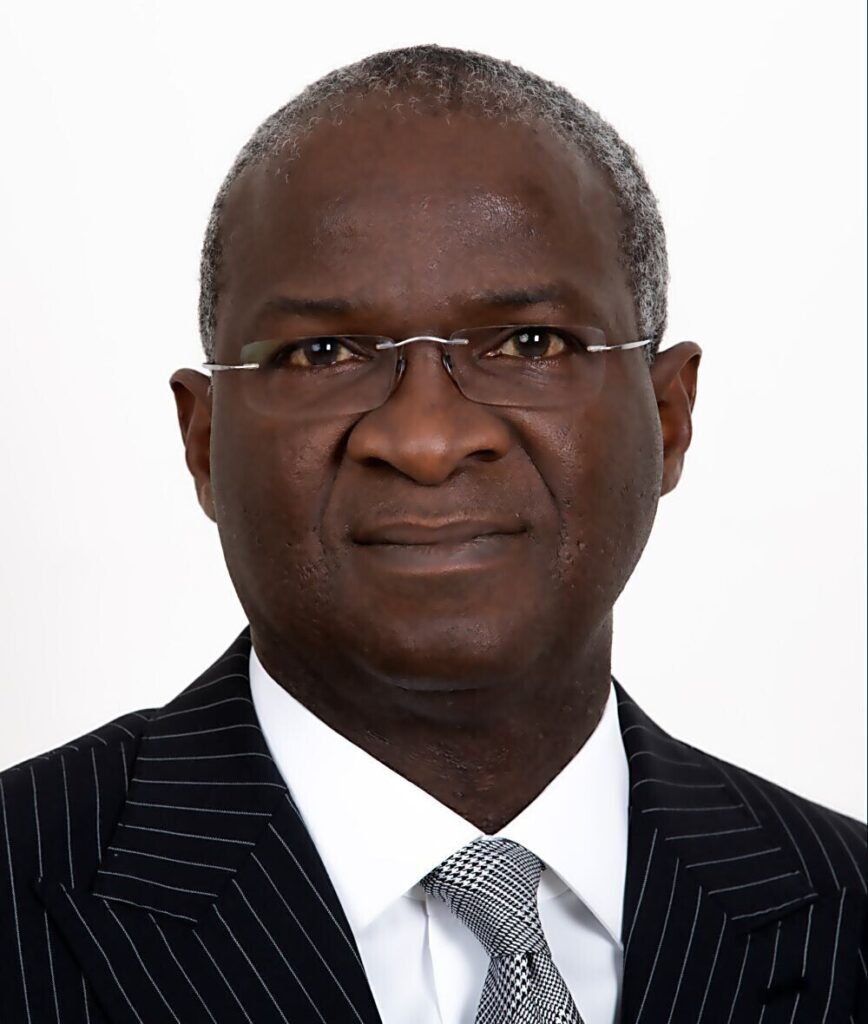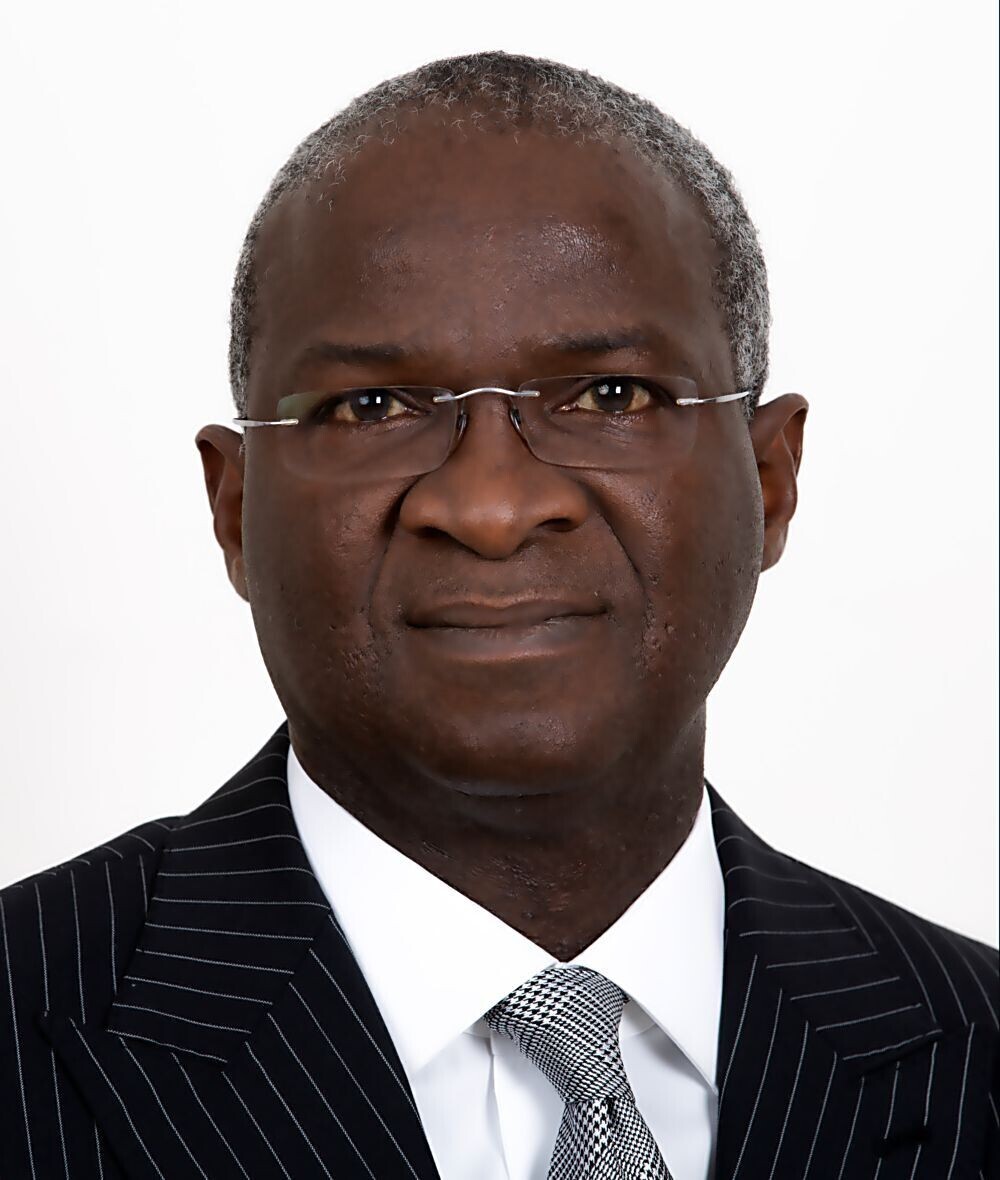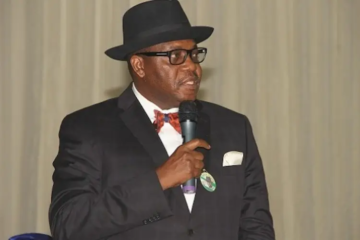
AT least two former ministers in the Muhammadu Buhari administration, Babatunde Raji Fashola and Rotimi Amaechi, respectively of the Works and Housing, and Transportation ministries, commented on what life has been like for them since they left office about eight months ago. These two former ministers, it should be noted, were also governors who served two terms in their respective states of Lagos and Rivers. They were both recently interviewed on Arise Television and both had interesting things to say.
A major fall-out of the Raji Fashola interview , which is the focus of this piece, was his claim that he is only paid N577, 000 as pension every month. This is what he gets as pension for the time he served as governor of Lagos State between 2007 and 2014. On the surface of it, a half a million naira or thereabout, would appear not to be a lot for a former governor. It would seem paltry for any former governor not to mention a governor of the wealthiest state in the country. But against the backdrop of the slave wage of what is called the national minimum wage, N577, 000 is a princely sum.
It should be said that Mr. Fashola is a serious-minded individual. Both as a governor and minister, he was one of the best-performing in spite of the difficulties he had managing the Ministry of Power, the nemesis of many a politician. The general pall of incompetence projected by the Buhari administration had a way of reflecting on anyone who served in the government, no matter their level of commitment. And Fashola was one of the very competent and hardest working of Buhari’s ministers despite the bad memories that many Nigerians have of the administration at a time of terrible hardship.
It was a time that would be long remembered as one of the most desperate in the annals of the country. The hardship culminated with the naira confiscation policy that completed the damage that began when Buhari decided to sit on his palm as insecurity perpetrated by terrorist herdsmen, insurgent elements and murderous bandits ravaged the country. In the light of this, there are very few positive things to say about the public servants or political appointees that served in the Buhari government. Fashola was one of the exceptions and so deserves to be taken seriously.
In taking him seriously, it becomes necessary to say and lay bare what his claim that he receives just over half a million naira monthly as pension occluded or left unsaid. The more so as his claims could serve as a cover under which unscrupulous politicians could hide to perpetrate crime against the people. Former public office holders, particularly governors, have been accused of not only depleting the resources of the state they formerly governed by corrupt enrichment but for also being the beneficiaries of double payments by way of huge pensions while receiving salaries as senators of the Nigerian State. It is no secret that a lot of them have turned the National Assembly, specifically the Senate, into their retirement home.
Mr. Fashola is not one of such politicians but his remarks about his pension fail to acknowledge that Lagos State, as Mr. Femi Falana recently explained, was one of the first states to legislate huge pension payments to former governors as far back as 2007. The legislation provided extremely generous perks that covered payments for medicals for the governors and their families, provided domestic staff, a retirement home in Lagos as well as in the Federal Capital Territory in Abuja; vacations abroad as well as personal security and brand new vehicles that are to be replaced at periodic intervals. I think once in every three years.
These are the additional perks to the monetary payment that Fashola failed to mention. When the legislation approving this was announced it elicited a huge outcry from Nigerians who could not understand why or how one person could be entitled to all of these on account of service rendered for just eight years. Perhaps due to this outcry from Nigerians, the Lagos State Government is yet to make this perks available, paying only the monetary aspect. But is that to say that it will not be paid eventually?
Has the legislation that supported this generous pension for former governors of Lagos State been repealed? There is no evidence of this. Which is not to say that Mr. Fashola has been enjoying it without admitting but it does tell us that whether now or later, former governors of the state, including Fashola, are bound to get what is due to them by law. While he may have the personal integrity to reject it if and when he is offered, can anyone say that about his predecessors as well as successors in office? How about his counterparts in other states who are beneficiaries of criminally generous pensions too? Are we to accept that their pension is far less than the law prescribes for them? Mr. Fashola seems to suggest that pension claims of public officials are exaggerated. Is that really the case?
The pension perks for past governors, approved by the legislatures of Lagos, Akwa Ibom and Rivers states, have been the model for 22 other states that have passed such legislation for former governors. These were people who only stayed in office for eight years maximum and quite a number of them, if not the majority, were not up to the statutory retirement age of 60 when they left office. But the majority of Nigerians by the time they are due for pension would have clocked 60 or spent between 35 to 40 years in service.
These are the facts that Mr. Fashola’s interview claims glossed over. His over half a million naira monthly pension is more than what a university professor that has spent more than 40 years in active service earns monthly. In the calamity that has befallen the naira, making it to exchange to one US dollar at about 1,400, since the devaluation that followed the harmonization of the foreign exchange market, N577, 000 would go a long way to meet the needs of the average Nigerian worker whose demand for two hundred thousand naira minimum wage has more or less been rejected by government.




